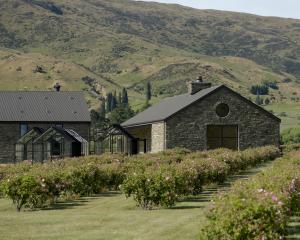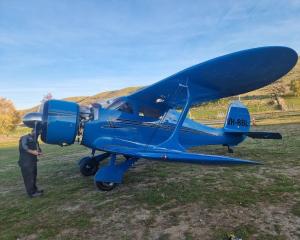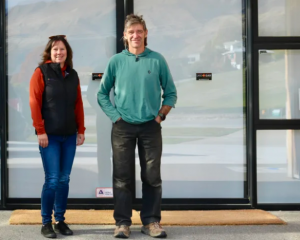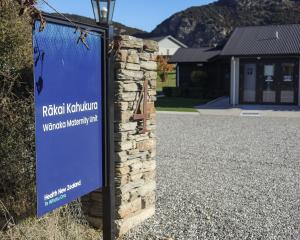Wanaka’s thriving economy is all down to the tourism and construction industries — or is it? Since the global financial crash of 2007-08, Wanaka’s economy has been slowly diversifying. As Kerrie Waterworth discovered, it has become a centre of entrepreneurial spirit and endeavour.
It was a cold wintry night in May when more than a hundred people from the Upper Clutha came together to hear stories.
The event had been booked out days in advance and the organisers were amazed that in a town the size of Wanaka, so many were keen to attend.
Many did not know each other but they were each greeted warmly by an event organiser as they entered the function room at the Edgewater Resort.
As the compere got to his feet a hush spread across the room.
After a brief introduction, each of the four storytellers told how they came to have an idea, how that idea evolved into a business, and the mistakes and successes they made on their journey to self-actualisation.
It was a night of inspiration, enlightenment and courage and one that many believed put Wanaka on the map as a centre for entrepreneurship.
Espire Media chief executive and NZentrepreneur digital magazine founder and editor Richard Liew was the compere of that event, the first Entrepreneur speaker session organised by the Centre of Unique Business Evolution (Cube) and Ignite Wanaka (Chamber of Commerce).
An entrepreneur himself, Mr Liew has started four businesses in the past 15 years, including the online magazine five years ago in Auckland.
''Our publication is there to inspire that person who has an inkling of an idea, to be that voice of encouragement that says you've been talking about that idea for some time now so why don't you do something about it because you can.''
A year ago, Mr Liew moved to Wanaka for the ''lifestyle and the stunning scenery.''
He said most of the NZentrepreneur digital magazine readers seeking help and advice were from New Zealand's main city centres and overseas, but since being based in Wanaka he had contributed to the entrepreneur ecosystem here.
''There is something happening here, there is a sense of energy which I put down to technology allowing people to build businesses which can serve national and international markets from just about anywhere and Wanaka is more viable than many other places.''
Mr Liew attributes that viability to the Gigatown Wanaka Plan and the Gigatown competition which led to ultra-fast broadband being installed in the central business district and the formation of the Cube and the Cell - a collaborative working space for start-up entrepreneurs, innovators and professionals, which grew out of a need to diversify the economy following the global financial crisis (GFC) between 2008 and 2012.
Wanaka Chamber of Commerce chairman Alistair King said before the GFC Wanaka's economy had been based on tourism and construction, but in 2010 the Wanaka chamber formed a task force that came up with a plan to diversify the economy so that if there ever was another downturn, the Wanaka economy would be robust and have a range of businesses to help the economy and keep job growth going.
''We're not set up for massive factories, but having high speed internet means that if you are an entrepreneur you can come and work in Wanaka as well as live the lifestyle and that's great for the economy.''
Mr King said he was not surprised that the Entrepreneurs Speaker session was a booked-out success.
''I think in Wanaka we've created a culture of sharing our learnings, sharing our experiences, to help people in business here. We've got a huge number of mentors, entrepreneurs who are keen to pass on what they've learnt, because they want others to be successful like them and because someone helped them in their early days.''
The Entrepreneur Speaker series for 2017 was the brainchild of Cube business development manager Jason Watkins.
The panel format with local entrepreneurs telling their stories, the first of five planned for this year, grew out of a desire to provide an opportunity for other entrepreneurs and aspiring entrepreneurs to hear different philosophies, good and bad experiences, new concepts and new ways of thinking, Mr Watkins said.
Kin2Kin app founder Hamish McGregor was on the panel that night and said of the 100 or more people that attended the event, he recognised only about five faces. ''That means there's a whole new group of people coming through who aren't in the business community and who are bringing new ideas into the town.''
Mr McGregor has a background in technology and building trading systems.
He was a commodity trader for years and had created and built technology-style businesses, but had never built an app before.
He created the private photo and messaging app as a way for his parents to communicate directly with his children.
He now works out of a small office in Wanaka's CBD, employs a workforce of eight, and the app has been downloaded in more than 50 countries.
He said when he started there was a ''natural mentor system'' in Wanaka where everyone gave feedback and in the last five years the technology available for collaboration and cloud storage had allowed him to have his global hub ''in a place called Wanaka.''
The biggest challenge facing many start-ups now in Wanaka was not technology, but finding staff who could afford to live here, he said.
Wanaka husband and wife entrepreneur team, Alex Guichard (formerly of Lyon, France) and Monique Kelly (formerly of Invercargill) agree.
They are the founders of start-up company Revology, which designed an award-winning chair.
Together with their digital marketer Arna Craig, they work from an office in the Guichards' family home. They have found the cost of housing in Wanaka now presents a ''major problem.''
''Jason [Watkins from the Cube] is trying his best to achieve change in that area but for a team like us it presents huge challenges - sustainable housing is one of the biggest issues and the cost of living in general,'' said Ms Craig.
Wanaka was a place that attracted talent.
''We're all here for the same reason and that's lifestyle and ultimately success, but we all thrive and grow off everyone else.''
The Guichards moved from France and started Revology three years ago.
In building up the brand, Ms Kelly said, they held focus evenings and a lot of people from different backgrounds and industries came and gave feedback on their project.
''There is a real buzz in Wanaka at the moment. There are a lot of other entrepreneurs doing really amazing, creative things and having that diversity of entrepreneurs allows us to kind of feed off one another.''
The Guichards have developed seven prototypes of their chair, winning several awards along the way. One is now on exhibition in Venice and they will launch the product in September.
Living so far away from the rest of the world presented no problems.
''We are one hour away from Queenstown international airport and from there we can be in Australia in three hours. To get to Europe, whether you're in Auckland or Wanaka it really doesn't make that much difference.''
Wanaka film maker Jase Hancox of CoLab Creative said he would ''definitely'' make ''a lot more'' money if he was living in Auckland because all the industry contacts and all the agencies were based there.
''But in saying that, a lot of our clients are international based and a lot of our work is overseas.''
The outdoor clothing company North Face (Australia) is one of CoLab Creatives' clients and last year they filmed with New Zealand skier Sam Smoothey, who is sponsored by North Face, skiing in the mountains of Bolivia, and also shot a promotional film with New Zealand mountain biker Kelly McGarry on White Island two weeks before he died.
Mr Hancox said although Queenstown tended to be the media hub for the South Island ''there is no reason why it couldn't happen here [in Wanaka].''
The CoLab Creative team was based in a studio at the back of the Cell and Mr Hancox said the Cube and the Cell had been very supportive.
''Jason [Watkins of the Cube] put me in touch with a mentor and that's been really good, as going back 10 years there was no-one, I had to fudge my way through it. Now there is definitely more of a business structure in place and there are multiple people I can turn to if I have a query about a business move or need to get that feedback.''
Mr Watkins said there was at present no register of entrepreneurs in Wanaka, but judging by the attendance at the first Entrepreneur Speaker night there were ''certainly lots of people out there doing things we don't know about''.
''That's either because they don't need our help or because they don't know about us.''
Event compere Richard Liew believed the turnout also indicated a lot of people understood it was important to start developing businesses outside of construction, tourism and hospitality ''if we are going to see highly skilled workers and real wealth being brought into this region''.
As a parent, and talking to other parents whose children had grown up in Wanaka, there was an acceptance that if your children had any ambition outside those three industries they had to move away, he said.
''But what if there was a more sustainable path so that when your kids are ready to come back in say five, 10 or 15 years' time there will be jobs here and it is achievable to live in this glorious part of the world.''
With the Cube, the Cell, the support of the Chamber of Commerce and the many entrepreneurs, it just might happen.

















